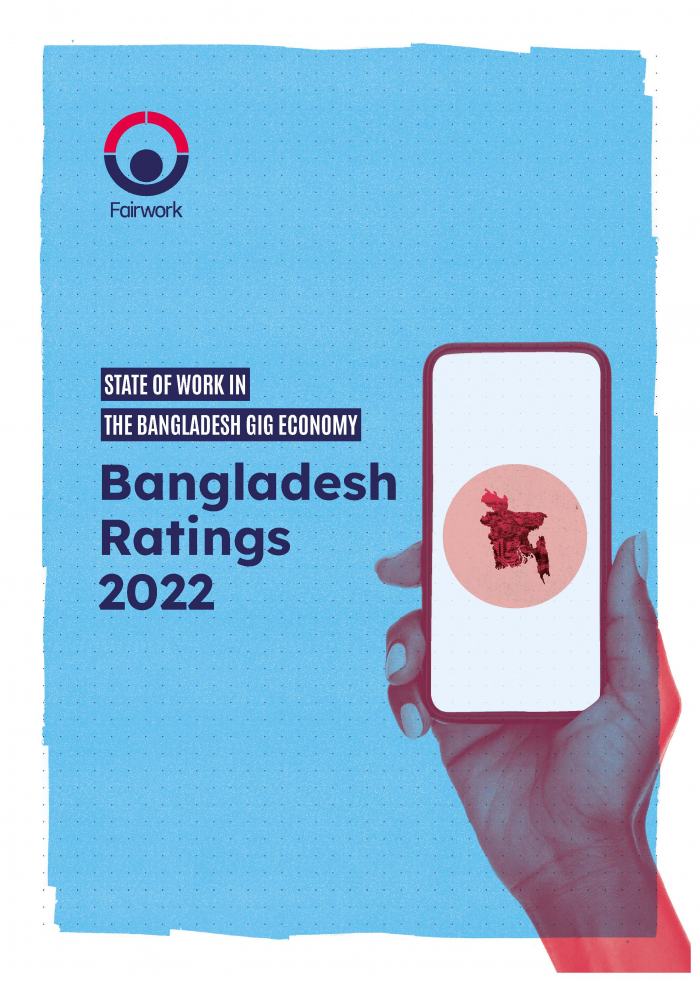Fairwork Bangladesh Ratings 2022: State of Work in the Bangladesh Gig Economy


In Bangladesh, the platform economy started to expand in 2016 with the arrival of Uber. Since then, digital labour platforms have emerged in many major industries including ride-sharing, transportation, food and grocery delivery, and domestic work.
However, workers on these platforms experience low wages, poor conditions, and a lack of job security. In this year’s Fairwork Bangladesh report, we evaluated conditions at nine prominent platforms: Chaldal, foodpanda, HelloTask, HungryNaki, Obhai, Pathao, Sheba.xyz, Truck Lagbe, and Uber.
This year’s research shows that many of the concerns around pay, working conditions, work contracts, management, and worker representation persist. Overall, however, platforms have generally performed slightly better than last year. We also have novel findings. In the rideshare sector, for example, we uncovered a new phenomenon of Khaep or “workers going solo” – where workers connect to customers directly instead of going through a platform, thereby rejecting the gig model.
Many gig workers in Bangladesh feel that they have been pushed to a point where they have to challenge the gig model as it currently stands…